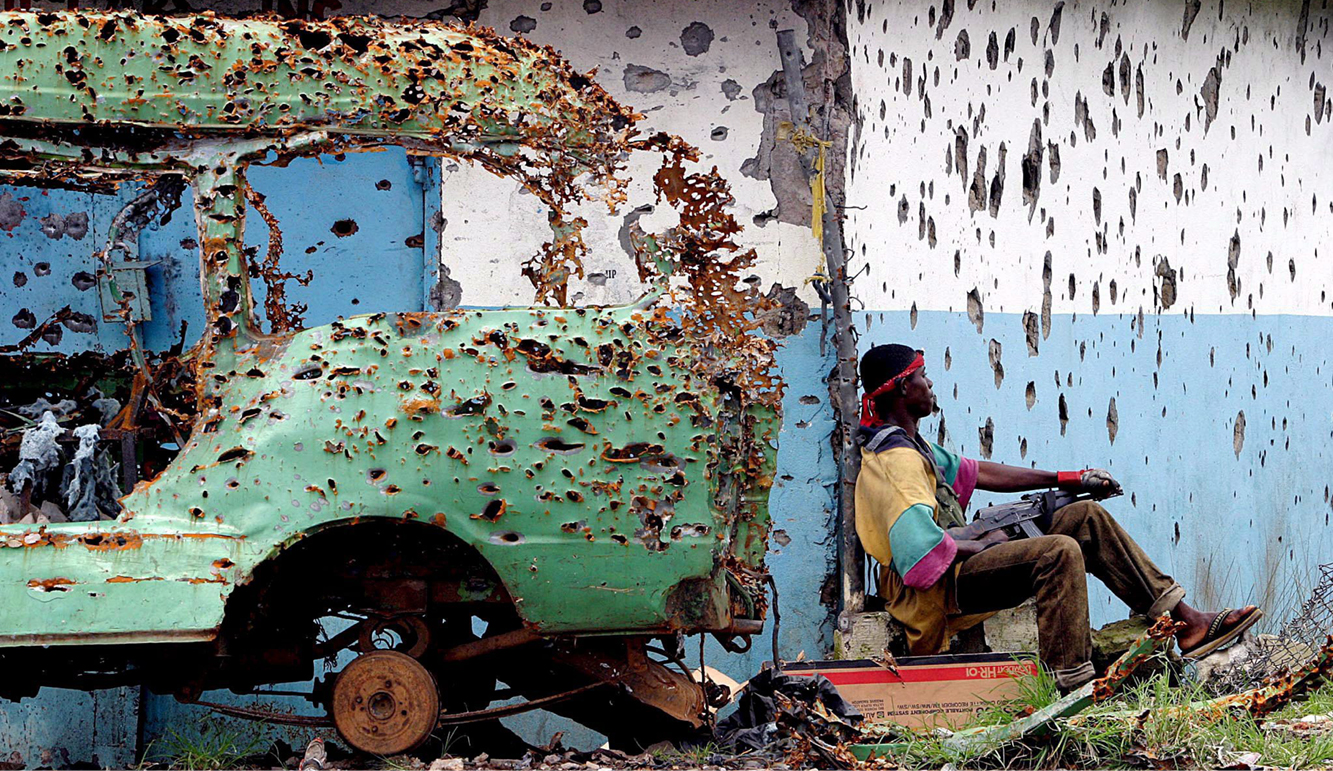
Civil war in Liberia. For the first time, a war criminal is sentenced in Switzerland.
fedpol at the heart of a historic trial
In 2021, Alieu Kosiah was tried for war crimes in Bellinzona. He was sentenced to 20 years in prison. This first trial for war crimes held at the Federal Criminal Court was a historic milestone for Switzerland.
Bellinzona, February 2021. Seven witnesses and seven plaintiffs took the stand at the trial against Alieu Kosiah, former rebel leader of the rebel group ULIMO (United Liberation Movement for Democracy in Liberia) that fought in the first civil war in Liberia (1989-1997). He was charged with 25 counts, including torture, rape and murder.
Why hold the trial in Switzerland?
After the end of the civil war, Alieu Kosiah took refuge in Lausanne. He lived in Switzerland for many years, unpunished. In 2014, he was arrested in Bern. He was prosecuted for these crimes, right here in Switzerland. Why in Switzerland? The Code of Criminal Procedure states that the Federal Criminal Court (FCC) is empowered to try cases involving genocide, crimes against humanity and war crimes. This is why war criminals can be prosecuted even thousands of kilometres from the country where their crimes were committed. The Swiss authorities are sending a clear message with this trial: Switzerland is not a haven for international criminals.
fedpol on a mission for the FCC
As is often the case with this type of crime, the only evidence that remains is witness testimony. This is why witnesses and plaintiffs from Liberia were heard in Bellinzona. fedpol was instrumental from beginning to end: it conducted the investigation on behalf of the Office of the Attorney General of Switzerland (OAG), and subsequently organised the handling of the witnesses in Liberia and in Switzerland, per the FCC’s instruction. The resources deployed were significant: a fedpol team of several dozen people worked together with numerous partners in Switzerland and abroad.
The challenge was enormous. fedpol had to act with discretion, both in Liberia and in Switzerland, in order to protect the people who would be taking the stand during the trial. Alieu Kosiah was still supported by many of his compatriots, and there were still tensions and differences between ethnic groups. It was important for fedpol staff working on the ground to stay vigilant. Anything could happen.
In the midst of the Covid pandemic, epidemiological risks also had to be taken into account and safe transport to and from Bellinzona had to be guaranteed. The trial was postponed once, twice, three times, until 3 December 2020, when the hearings finally began. The efforts and patience were rewarded: the victims were heard, and the accused was sentenced.
A mission orchestrated down to the minute
fedpol was involved from the very beginning. The mission required months of preparation, coordination and setting up contingency plans – it almost had to be timed to prepare for all eventualities. The challenge was considerable. The stakes were historic. Everything needed to go perfectly for this mission to succeed – and thanks to the commitment of everyone involved, it did.
For fedpol and its partners, including the FCC, the OAG, the Federal Department of Foreign Affairs and the State Secretariat for Migration, this was a resounding success. Effective joint working, a constant exchange of information with partners and seamless teamwork led to the achievement of a historic milestone.